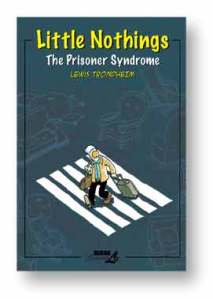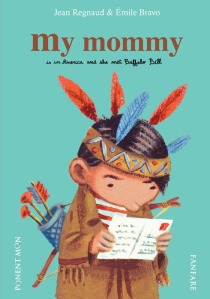Archie Comics were the first ones I ever remember reading, along with Harvey titles like Casper and Richie Rich. I can’t say with certainty that the presence of a gay character among the Riverdale populace would have enhanced my enjoyment when I was five, but the prospect delights me as a 42-year-old. I haven’t read an Archie comic in ages, even the wedding issues, but I’ll certainly pick up this one. (If you want to save energy and see the full spectrum of reactions to stories like this, please visit this comments thread at The Beat. You know what you’ll find, so I won’t waste time summarizing.)
I already like Kevin a lot for his ability to zero in on the core question of the sexual dynamics of Riverdale:
Don’t dwell on it, Kevin.
That preview page reminds me of an old Archie story I must have read in some station wagon back in the 1970s, though I can’t precisely remember when, or even which Archie comic featured it. In it, Veronica has been heaping abuse on Jughead, because that’s one of the things she does, and everyone accepts it as normal.
Jughead, however, privately conceives a revenge scheme. When no one else is around but Veronica, he slips into this predatory lothario mode that would have Reggie taking notes. He insists to Veronica that they’re meant to be together and that she knows it’s inevitable. She freaks out, as would anyone who rightly believed that Jughead could never muster amorous intent towards anything that didn’t come off of the grill at the Chok’lit Shoppe. No one believes her when she swears that Jughead is creepily wooing her, and she snaps by the end of the story as Jughead watches with malicious but concealed glee.
Has anyone else ever read this story? Does it actually exist, or has my memory started actually constructing twisted fan fiction?
Update: This story is described in Jughead’s Wikipedia entry, so I’m not crazy.










